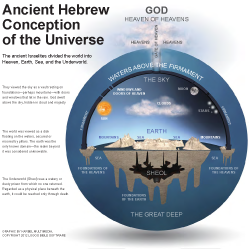7:1–21 Job continues his response to Eliphaz and addresses God directly. He laments his life (vv. 1–6) and reflects on death (vv. 7–10). Then he demands that God leave him alone and stop afflicting him (vv. 11–21). |
7:5 my skin hardens, then it gives way The exact nature of Job’s illness is unknown. The sores that covered his entire body (2:7) would break open and scab over repeatedly. His affliction made it difficult for him to sleep (v. 4)—either because of irritation (2:8) or pain (30:17).
7:6 are swifter than a weaver’s shuttle The shuttle on a loom flies back and forth, and the thread is cut when the cloth is finished. Job thinks his life is nearly finished and he will be cut off.
7:7 Remember Job addresses God directly and asks Him to respond to his affliction—in this case, by ignoring him so that he may die (vv. 12–19). Calls for God to remember can be found throughout the ot. These calls sometimes appeal to God to remember His attributes—His mercy (Psa 25:6; compare Psa 109:16), love (2 Chr 6:42), word (Neh 1:8; Psa 119:49), or promises (Exod 32:13).
my life is a breath The Hebrew word used here, ruach (meaning “wind,” “breath,” or “spirit”), occurs frequently in Job (e.g., Job 6:4, 26; 8:2; 9:18; 15:30). Job is referring to just how short a human life is.
7:9 Sheol The Hebrew term used here, she’ol, indicates the underworld, the place of the dead according to Hebrew thought (see note on Job 14:13).
according to Hebrew thought (see note on Job 14:13).
 Old Testament Theology of the Afterlife
Old Testament Theology of the Afterlife
7:11 will not restrain my mouth Job declares that he will continue to speak freely, which he repeats several times throughout his speeches. See note on 10:1.
I will speak Eliphaz encouraged Job to seek God (5:8). Here, Job begins to address God directly. However, instead of approaching God for forgiveness, Job asks God to leave him alone.
7:12 the sea In the ancient Near Eastern worldview, the sea was a force of chaos that had to be subdued by deities. See note on Gen 1:21.
a sea monster In the ancient Near Eastern worldview, sea monsters, such as Leviathan and Rahab (see Job 3:8 and note; 9:13 and note), were viewed as threats to the created world (see 41:1 and note; Isa 27:1 and note). God keeps an eye on them to maintain order in His creation. Job wonders what kind of threat he must be that God is giving him the kind of rebuke given to these creatures (compare Gen 18:20–21).
you set a guard over me Job feels he is being treated as an enemy of God. He sarcastically asks God why He needs to watch over him in this way.
7:16 I loathe my life See Job 9:21; 42:6.
depart from me Job directly demands that God leave him alone. While God never condemns Job’s speech (42:8), Job repents after God responds (42:6).
are a breath The Hebrew word used here, hevel, refers to breath, vanity, something absurd, or something meaningless. See note on Eccl 1:2.
7:17 What is a human being Echoes Psa 8:4, where the psalmist marvels that God in His majesty and glory would be concerned with humanity. Job laments God’s concern for humanity since it is crushing him.
7:20 what have I done to you Job believes himself to be innocent (Job 6:10); he demands to know what sin he is guilty of that merits such devastating punishment.
a target for yourself Job felt God had targeted him unfairly (16:12; Lam 3:12).
7:21 do you not pardon my transgression Job is not admitting guilt; he assumes that he is on trial and God presumes him guilty. He wants God to stop punishing him (compare Job 13:23). Job will continue to ask for a fair hearing before God (9:14–20; 13:1–3, 18–28; 19:7–24; 23:2–9).
now I shall lie in the dust Job seems to assume his request for death (6:8–9) will be granted soon.

|
About Faithlife Study BibleFaithlife Study Bible (FSB) is your guide to the ancient world of the Old and New Testaments, with study notes and articles that draw from a wide range of academic research. FSB helps you learn how to think about interpretation methods and issues so that you can gain a deeper understanding of the text. |
| Copyright |
Copyright 2012 Logos Bible Software. |
| Support Info | fsb |
 Loading…
Loading…

